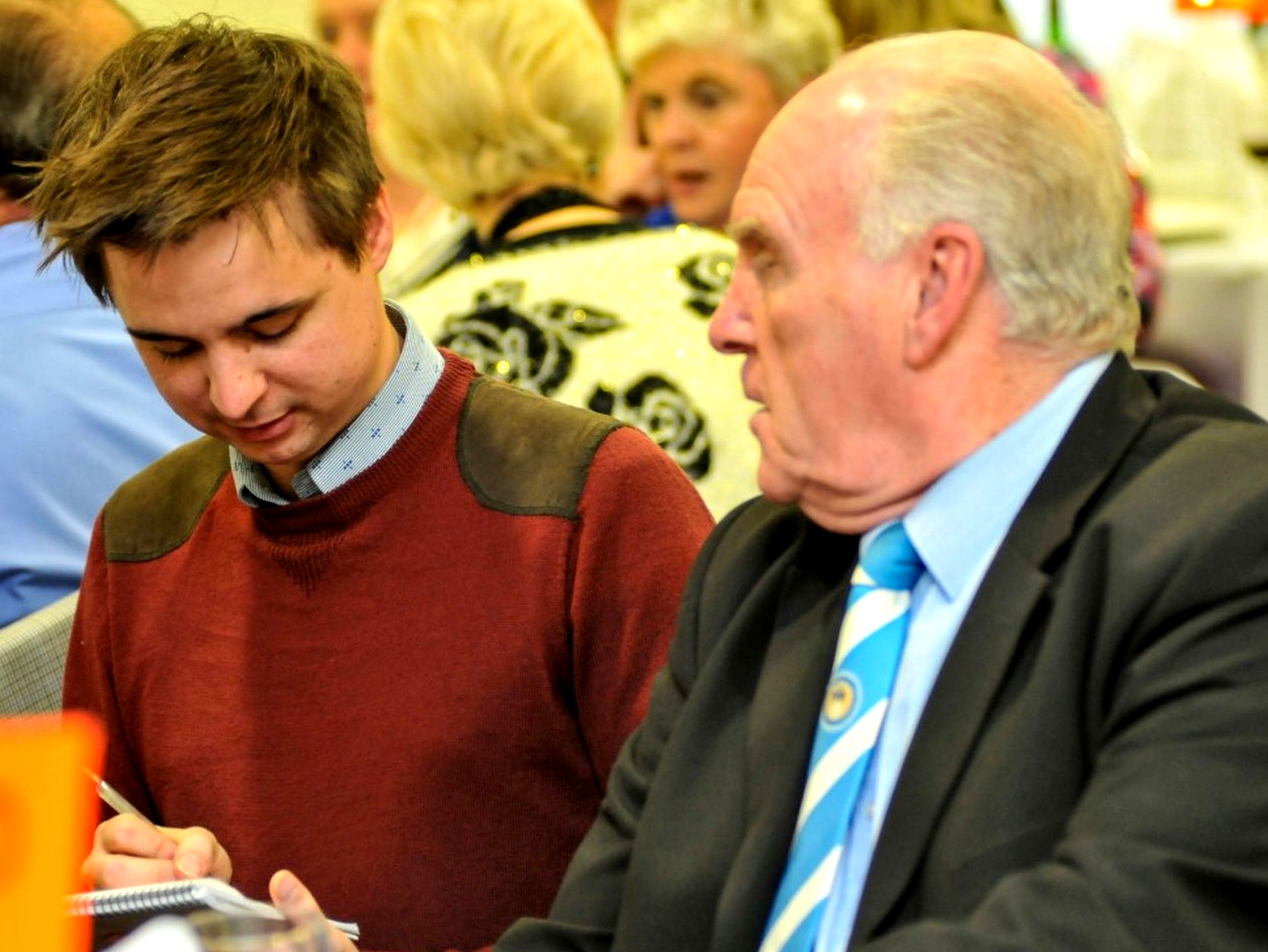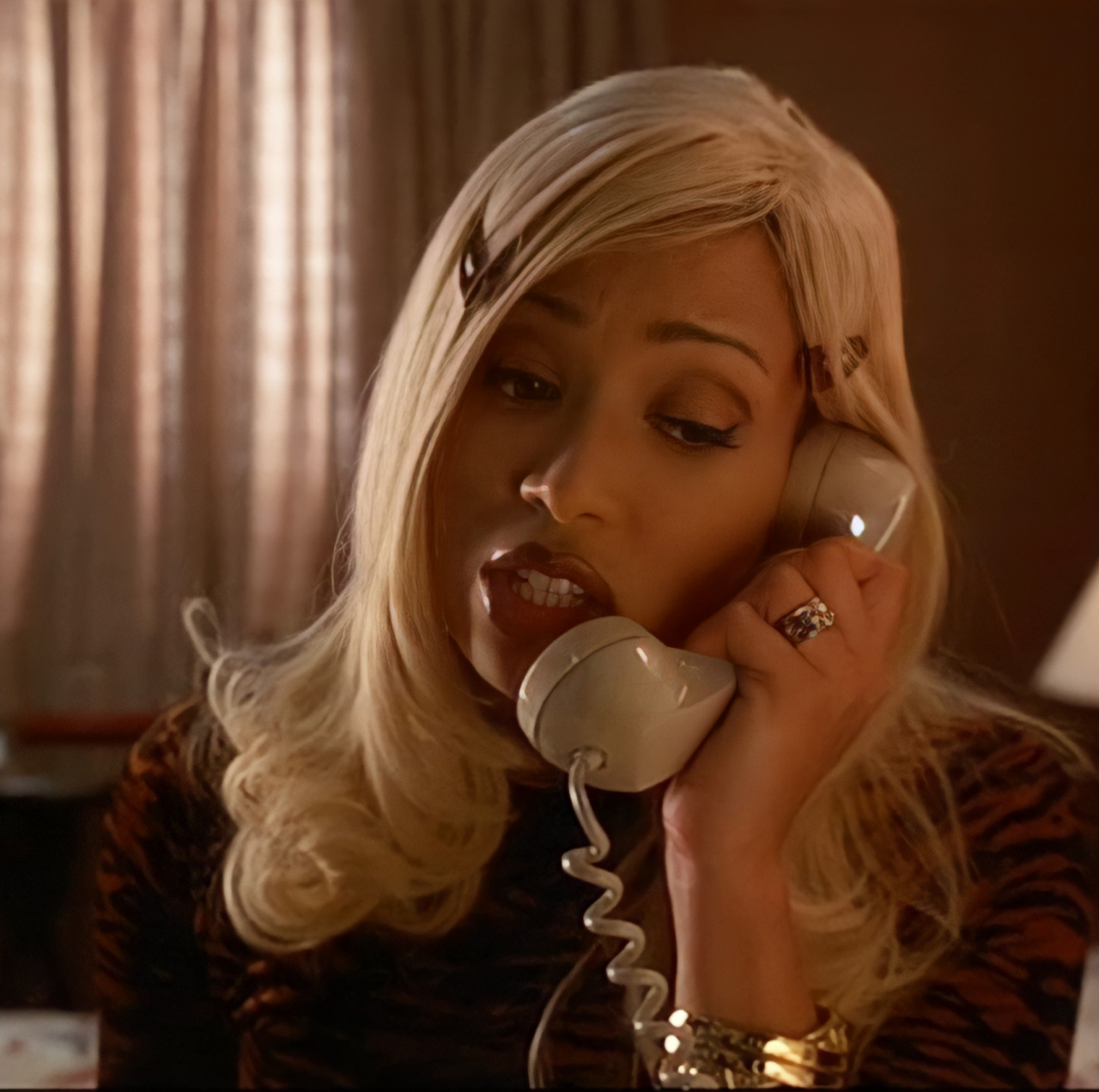Ronnie Players Club - A Lasting Cultural Moment
The Players Club holds a special spot for many folks, a real classic from the nineties that still gets people talking. It's a film that, you know, just captured a certain spirit of its time, presenting a look into a world that was both gritty and, in a way, glamorous for some. People often remember specific scenes and, as a matter of fact, certain lines from it just stick with you, becoming part of a shared language among those who grew up watching it.
It's more than just a film; it’s a cultural touchstone, especially for many Black homes where lines from it are almost like common sayings, you know, just part of the shared experience. The movie, pretty much, gave us characters who felt real, situations that felt honest, and a storyline that, in some respects, resonated deeply with a lot of viewers. It’s the kind of picture that, like your favorite old song, you can put on anytime and still find something new to appreciate.
The discussions about this film, particularly around figures like Ronnie from The Players Club, keep popping up, showing just how much it has stayed with us, even years later. People often bring up her actions, her choices, and her general demeanor, which, apparently, sparks quite a bit of conversation online and among friends. It’s clear that her presence in the movie left a significant mark, prompting viewers to think about her character long after the credits roll.
- Selenophile Meaning
- Seed And Mill
- Bossman Dlow Net Worth
- Progress Bar Chicago
- Things To Do In Dallas For Couples
Table of Contents
- Who is Ronnie from The Players Club?
- What Made Ronnie Such a Memorable Figure?
- Diamond Versus Ronnie - What's the Big Deal?
- How Did Ronnie Shape Ebony's Path in The Players Club?
- Ronnie's Role in Dollar Bill's Operation
- Why Does The Players Club Remain a Cultural Gem?
- Discussions About Ronnie Years On
Who is Ronnie from The Players Club?
Ronnie, a central figure in The Players Club, comes across as a woman who understands the ins and outs of her surroundings. She’s portrayed as someone with a good grasp of how things work in the adult entertainment world depicted in the film, and she often shows a kind of street smarts that keeps her ahead. Her character, you know, really stands out because she’s not just another face in the crowd; she has a presence that commands attention and respect from those around her, for instance.
The Character Ronnie in The Players Club
Ronnie in The Players Club is, for many viewers, a representation of strength and, arguably, a certain kind of independence within a very specific setting. She navigates the daily happenings of the club with a sense of purpose, always looking out for her own interests while also, in a way, managing the expectations of others. Her personality is complex, making her a character that people find themselves thinking about long after the movie ends, you know, wondering about her motivations and her future.
| Aspect | Details about Ronnie's Character in The Players Club |
|---|---|
| Role in Film | A veteran dancer and, in a way, a manager of sorts at the club. She appears to be Dollar Bill's trusted advisor. |
| Personality | Sharp, clever, street-smart, somewhat manipulative, yet also a mentor figure to some. She is, in fact, a survivor. |
| Key Relationships | Close with Dollar Bill, takes Ebony under her wing, has a rivalry with Diamond. |
| Key Quote | Embodies the idea of "Make that money don't let it make you." |
| Influence | Holds considerable sway over the club's operations and the lives of other women there. |
What Made Ronnie Such a Memorable Figure?
Ronnie's character, honestly, left a big impression on people for several reasons. She wasn't just a background person; she had a significant impact on the story and the other characters. Her actions and her outlook on life, for instance, offered a different perspective compared to some of the other women in the club. She seemed to understand the dynamics of power and money in that environment better than most, which, you know, made her quite compelling.
Ronnie's Influence in The Players Club
Her influence in The Players Club, in fact, was pretty clear. She wasn't just working there; she was, arguably, a key player in how things ran. People saw her as someone who could get things done, someone who had the ear of the club owner, Dollar Bill. This position of trust and, you know, responsibility gave her a lot of sway, allowing her to shape events and even guide the paths of newer individuals, as a matter of fact, who came into that world.
Diamond Versus Ronnie - What's the Big Deal?
The clashes between Diamond and Ronnie in The Players Club are, arguably, some of the most talked-about moments from the film. These two characters, you know, represent different approaches to surviving in the club, and their conflicts really highlight the tensions that can arise. People often discuss who was in the right or wrong, and what each character truly wanted out of their situations, which, of course, keeps the conversation going.
The Dynamics of Diamond and Ronnie in The Players Club
The dynamic between Diamond and Ronnie in The Players Club is, pretty much, a study in contrasts and, for instance, a battle of wills. Diamond, the newer arrival, brings a fresh energy, while Ronnie, the established veteran, embodies a more hardened, strategic outlook. Their interactions, especially that well-known fight scene that Chrystale Wilson has discussed, are, in a way, pivotal. They show the different ways people try to assert themselves and protect their interests in a tough environment, and it's, you know, a very memorable part of the movie.
How Did Ronnie Shape Ebony's Path in The Players Club?
Ronnie's connection with Ebony in The Players Club is, honestly, a significant part of the story. Ronnie took Ebony under her wing, almost immediately, and started showing her the ropes. This relationship, you know, was a key aspect of Ebony's early experiences in the club, demonstrating how new people were introduced to that way of life. It’s clear that Ronnie had, as the saying goes, her "hooks in Ebony," guiding her through the initial stages.
Ronnie's Mentorship in The Players Club
Ronnie's role as a mentor in The Players Club was, in some respects, quite influential for Ebony. She was teaching her how to navigate the club's environment, how to handle situations, and, perhaps, how to make the most of her time there. Even if Ronnie was still in the dressing room when Ebony was told to leave with others, it suggests that Ronnie's guidance was already, you know, pretty much established. This kind of instruction, for instance, shaped Ebony's initial understanding of her new world, which is a big part of her story.
Ronnie's Role in Dollar Bill's Operation
Ronnie's position within Dollar Bill's business in The Players Club was, arguably, far more important than it might seem at first glance. She wasn't just an employee; she was, in fact, a crucial part of his operations, almost like a silent partner in some ways. Her understanding of the business and her connections were, you know, very valuable to him, allowing him to keep things running smoothly and profitably, pretty much all the time.
Ronnie's Strategic Position in The Players Club
Ronnie, honestly, lowkey ran The Players Club alongside Dollar Bill. She was, as some might say, his "ear, eyes, nose, and mouth," meaning she was his primary source of information and, you know, his main contact for many things. She was the one who, for example, linked the women with clients who had a lot of money, ensuring Dollar Bill's business continued to thrive. This strategic spot gave her considerable sway and, in a way, made her indispensable to the whole operation, showing her true importance.
Why Does The Players Club Remain a Cultural Gem?
The Players Club continues to be, honestly, a beloved film for a lot of people, particularly within Black communities. It's not just a movie; it's a piece of culture that many have grown up with and, in a way, see themselves reflected in. The fact that most melanated people with a sense of culture and pride can, for instance, easily quote lines from it just shows how deeply it has settled into the collective consciousness, which is pretty cool.
The Lasting Appeal of The Players Club
This movie, you know, has a lasting appeal because it feels, in some respects, like a "hood novel" brought to life. It tells a story that, arguably, resonates with experiences and themes that are familiar to many, offering a raw yet, in a way, entertaining look at certain aspects of life. The characters, including Ronnie, feel real, and their struggles and triumphs are, you know, relatable, making it a film that people return to again and again, even years after its first release.
Discussions About Ronnie Years On
It's pretty interesting how much people still talk about Ronnie from The Players Club, even almost two decades later. Threads discussing her character, like whether someone would "still hit" on her or hypothetical scenarios like her working at a different kind of job, pop up online. These conversations, you know, really highlight how much she stuck with viewers and how her character, in a way, transcended the film itself, becoming a topic of continued thought and debate.
Ronnie's Legacy Beyond The Players Club
Ronnie's legacy, in some respects, goes beyond just her role in The Players Club. She was, arguably, everything to some viewers, even though her character was a prostitute. This suggests that people saw more in her than just her profession; they saw her strength, her intelligence, and her ability to navigate a difficult world. The ongoing discussions, for instance, about "Diamond vs Ronnie" just show that her character, and the movie itself, continue to spark lively debates and, you know, remain a part of cultural conversations, years and years after its initial release.
Article Recommendations



Detail Author:
- Name : Madyson Schmidt Sr.
- Username : zlind
- Email : ocummerata@swaniawski.com
- Birthdate : 1994-05-13
- Address : 96971 Justus Street Apt. 066 Estevanmouth, MI 19800-7666
- Phone : +1-305-656-6005
- Company : McClure, Lubowitz and Boyle
- Job : Stonemason
- Bio : Commodi laborum officiis ea aut. Pariatur quaerat nesciunt in et. Assumenda recusandae ipsa est dignissimos.
Socials
instagram:
- url : https://instagram.com/pouros2000
- username : pouros2000
- bio : Non aut quibusdam et sunt sit repudiandae. Ullam harum ullam dolore quia sunt.
- followers : 887
- following : 97
linkedin:
- url : https://linkedin.com/in/vpouros
- username : vpouros
- bio : Ea quaerat dolorem omnis debitis quos.
- followers : 4346
- following : 2461
facebook:
- url : https://facebook.com/pourosv
- username : pourosv
- bio : Labore nam dolores voluptatem dolor ut dolores.
- followers : 5116
- following : 670
tiktok:
- url : https://tiktok.com/@pouros1991
- username : pouros1991
- bio : Aut dolore similique ut reprehenderit consequatur error dolores.
- followers : 4891
- following : 1681
twitter:
- url : https://twitter.com/veronica_pouros
- username : veronica_pouros
- bio : Sit exercitationem aut amet eligendi a est quidem voluptatem. Ducimus ut omnis qui qui. Dicta laborum quas id placeat.
- followers : 1301
- following : 646